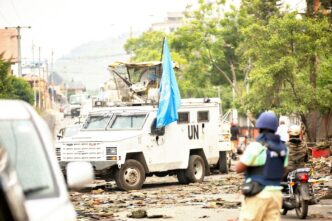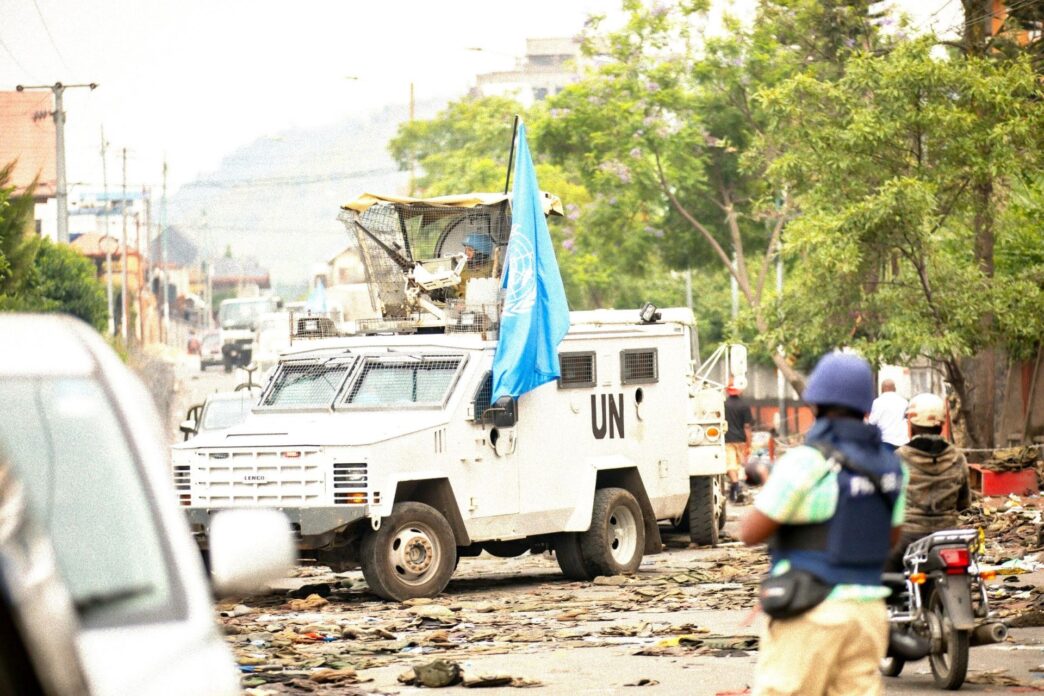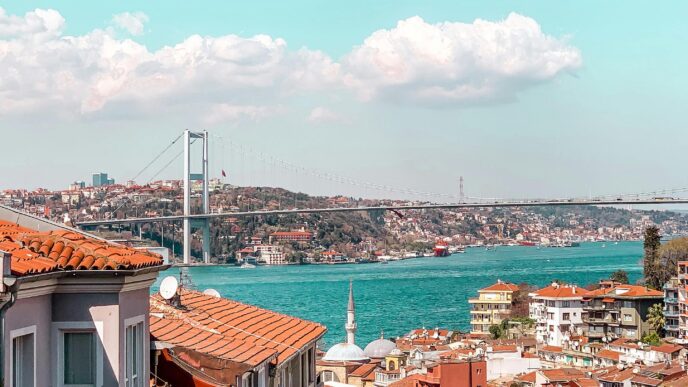At the heart of global decision-making on war, peace, and security lies the United Nations Security Council (UNSC)—a body that can authorize military action, impose sanctions, and shape the fate of entire nations. Yet, despite its enormous influence, the UNSC remains an exclusive club dominated by a post-World War II power structure that has barely evolved in over seven decades.
Among the most glaring inequities in this system is the absence of a Muslim-majority nation holding a permanent seat. With a global Muslim population of 1.9 billion—one-quarter of humanity—this exclusion raises uncomfortable questions. Why have Muslim nations remained sidelined in the world’s most powerful diplomatic body? Why do decisions that impact places like Palestine, Kashmir, Syria, Yemen, and the Rohingya crisis continue to be made without the direct input of those most affected?
This is not just about bureaucracy—it is about power, influence, and systemic exclusion. The structure of the UNSC, its bias towards Western geopolitical interests, and the disunity among Muslim-majority countries all contribute to the reality that, despite their numbers and economic weight, Muslim nations remain politically invisible at the highest level of global governance.
How the UNSC Works—And Why It Favors the Powerful
The UN Security Council consists of 15 members:
- Five Permanent Members (P5) with veto power: the United States, United Kingdom, France, Russia, and China.
- Ten rotating non-permanent members, elected for two-year terms, with no veto power.
This structure was created in 1945, after World War II, when the victors—primarily Western powers, along with Russia and China ensured that global decision-making remained firmly under their control. The veto power granted to the P5 allows any of these nations to block any resolution, regardless of how much global support it has.
This has led to blatant geopolitical bias:
- The US consistently vetoes resolutions critical of Israel, preventing meaningful action on Palestine.
- Russia shields Syria, blocking accountability for war crimes.
- China has used its veto to prevent action on the persecution of Uyghur Muslims and the Rohingya crisis.
This unbalanced system favors the interests of a select few, often at the expense of the Global South, including the Muslim world. While India, Brazil, Germany, and Japan have long pushed for permanent seats, Muslim-majority nations have remained largely absent from the conversation.
The Issue of Muslim Underrepresentation: A Quarter of the World, But No Permanent Seat
With 57 Muslim-majority countries and a population nearing 2 billion, one would expect at least one Muslim-majority nation to hold a permanent UNSC seat. Yet, the structure of the Council reflects an outdated world order, one where Western powers dictate the rules, while the voices of Africa, Latin America, and the Muslim world are largely ignored.
There are several key reasons for this exclusion:
1. The Post-Colonial World Order
The UN was designed by the victors of WWII, with no representation from the Muslim world at the time. Even as many Muslim-majority countries gained independence in the 20th century, they were never integrated into the highest levels of global decision-making.
2. Lack of a Unified Muslim Bloc
Unlike the European Union or China, the Muslim world is deeply divided along political, sectarian, and regional lines. The Organization of Islamic Cooperation (OIC), which represents 57 Muslim nations, has failed to act as a cohesive political force. Rivalries between countries like Saudi Arabia, Iran, Turkey, and Pakistan prevent a united front on global issues.
3. Geopolitical Realities and Western Dominance
Muslim-majority nations are often seen as “subjects” of international decision-making rather than participants. This is evident in how the UNSC handles conflicts in the Muslim world deciding the fates of Palestine, Syria, Libya, Iraq, and Afghanistan without direct input from any Muslim-majority power.
Would Palestine still be occupied if a Muslim-majority nation held veto power? Would the Rohingya genocide have been ignored? These are uncomfortable but necessary questions.
How UNSC Inaction—or Bias—Has Harmed Muslim Nations
The failure of the UNSC to act on key crises in the Muslim world highlights how Muslim voices are systematically excluded from global decision-making. Some of the most glaring examples include:
1. Palestine: The Never-Ending Veto
Since 1948, Palestine has been one of the most debated issues at the UN, with over 100 resolutions proposed to condemn Israeli aggression. Almost every single one has been vetoed by the US, ensuring that Israel remains immune to accountability.
2. The Rohingya Crisis: Empty Words, No Action
The ethnic cleansing of Rohingya Muslims in Myanmar was described as “textbook genocide” by the UN itself, yet the Security Council failed to take action. China, an ally of Myanmar, ensured that any resolution to protect the Rohingya was blocked.
3. Syria: A Battlefield for Global Powers
The Syrian civil war has become a proxy conflict for global powers, with Russia and China consistently vetoing any resolution that would hold the Assad regime accountable, while Western powers selectively intervene based on their interests.
4. Kashmir: A Crisis Ignored
Despite repeated calls from Pakistan and other Muslim nations, the UNSC has failed to meaningfully address the Kashmir conflict, largely due to India’s strategic alliances with Western powers.
These examples reveal a clear reality: Muslim nations are subjects of UNSC resolutions, but they are rarely decision-makers.
Failed Attempts at Reform: Why the System Remains Unchanged
For decades, there have been calls to reform the UNSC, making it more representative of today’s world. Turkey, Indonesia, Pakistan, and Egypt have all pushed for greater inclusion of Muslim-majority nations, but reform efforts have repeatedly failed.
Why? Because the P5 members have no incentive to share power. The US, UK, France, Russia, and China benefit from maintaining the status quo, ensuring their geopolitical influence remains unchallenged.
While India, Brazil, Germany, and Japan have gained traction in the debate for a permanent seat, no Muslim-majority nation has made significant progress in securing a place at the table.
The Future of Muslim Representation: What Can Be Done?
If the Muslim world is to break into the highest levels of global governance, it must pursue three key strategies:
1. A Unified Political Bloc
The Organization of Islamic Cooperation (OIC) must act as a cohesive political entity, rather than a symbolic group with little real influence. A united Muslim voice whether through the OIC or a coalition of key Muslim nations—could push for greater representation.
2. Strengthening Muslim-Led Regional Alliances
Rather than waiting for a UNSC seat, Muslim nations should strengthen regional political and economic alliances. Greater collaboration between the Gulf Cooperation Council (GCC), ASEAN (which includes Indonesia and Malaysia), and the African Union could provide alternative diplomatic weight.
3. Demanding a More Democratic UN
The fight for a restructured, more inclusive UNSC must continue. Muslim-majority nations should align with other underrepresented regions—such as Africa and Latin America—to demand a shift away from the P5-dominated system.
The Fight for Political Dignity
The Muslim world holds immense economic, cultural, and demographic power, yet it remains politically invisible in the highest halls of global governance. Until Muslim nations can overcome their divisions, challenge the post-colonial status quo, and demand a seat at the table, decisions on Palestine, Kashmir, Syria, and other Muslim-majority regions will continue to be made without them.
The UNSC is not just an institution—it is a battleground for power. And until Muslim nations step up to claim their rightful place, they will remain spectators in a world where their fate is decided by others.














